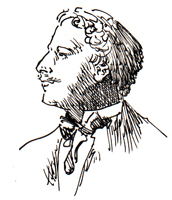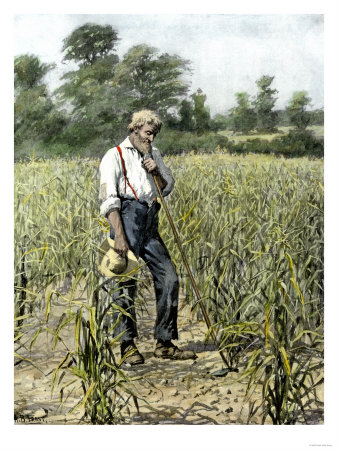 Edward Cummings
Edward Cummings
A Life and its Sermons in Poetic Song
It is not uncommon to have a view of the father through the eyes of the son. The son describes the father to us, and tells us, in his way, what the father meant to him. Thus is a father known and even praised by the son. We can find this praise in a particular son’s book: The Enormous Room.
But more singular it is that a famous son paints for us in his poetry the picture of the Dad and his ministry. The father was Rev. Edward Cummings. Earlier, he had been Professor of Sociology at Harvard, but had changed vocations mid-life. Who, after a stint at the Harvard Divinity School, had become Minister, in 1900, of a Boston church, a church which became one of the Seven Societies making up the First Church in Boston today. The boy was Edward Estlin Cummings, better known as e e cummings, the poet, notorious in adulthood for the freedom and permissiveness of his life and poetry, but ‘first and last a deeply religious poet.’
As a boy, Estlin attended his father’s Church, the South Congregational Church (Unitarian), located in Boston’s Back Bay at the corner of Newbury and Exeter Streets, across from the Spiritualists Temple. Today, the lot is filled by a condominium complex. But from the age of six until his college days, young Estlin and his sister Elizabeth sat beside their mother, Rebecca, in the family pew. After singing the hymns, the two young ones listened to their Dad preach. In his sermons, Rev. Cummings followed his predecessor Edward Everett Hale’s vital message of service to the community.
These were not yet the years when the dissenting poet wrote about ‘the Cambridge ladies who live in furnished souls [who] have comfortable minds.’ Or, in a child’s voice: ‘In just Spring...the world is puddle-wonderful,’ showing a love of nature which transforms even Emerson into 20th century pronouncements, voicings, intonations.
But there are moments in cumming’s poetry which carry word-pictures of uncommon grace. For example, the ability to memorialize, in his unique style, with a strain of deep feeling, and with dignity and respect, the lives of those about him. Sam Ward, the caretaker of the family’s Joy Farm, must have been a special friend to the young boy.
 .
.
rain or hail
sam done
the best he kin
til they digged his hole
and on him sings
a whippoorwill;
Sleep well
The poem for the Father (my father moved through dooms of love) is a heartfelt eulogy within an immortalizing frame. The minister’s work is with those spiritually bereft, but with a full show of love for them. And must he go through sames of am, Church business? Committee meetings? We hear John Winthrop in haves of give: ‘If you have, and there is someone in need, then you must give them some of what you have.’ The father moved through depths of height, inner depths which which can lift us up to joyous heights.
My father moved through theys of we,
singing each new leaf out of each tree
(and every child was sure that spring
danced when she heard my father sing)
The entire poem is in strict psalmic meter. It sings very well to the Old Hundredth Psalm tune or the Tallis Canon. This is the music in the ear of the poet as he reflects on his early experiences when, on Sunday mornings, he would sit in that family pew and sing.
and nothing quite so least as truth
— i say though hate were why men breathe —
because my father lived his soul
love is the whole and more than all